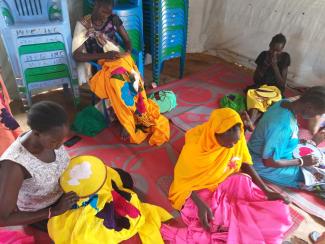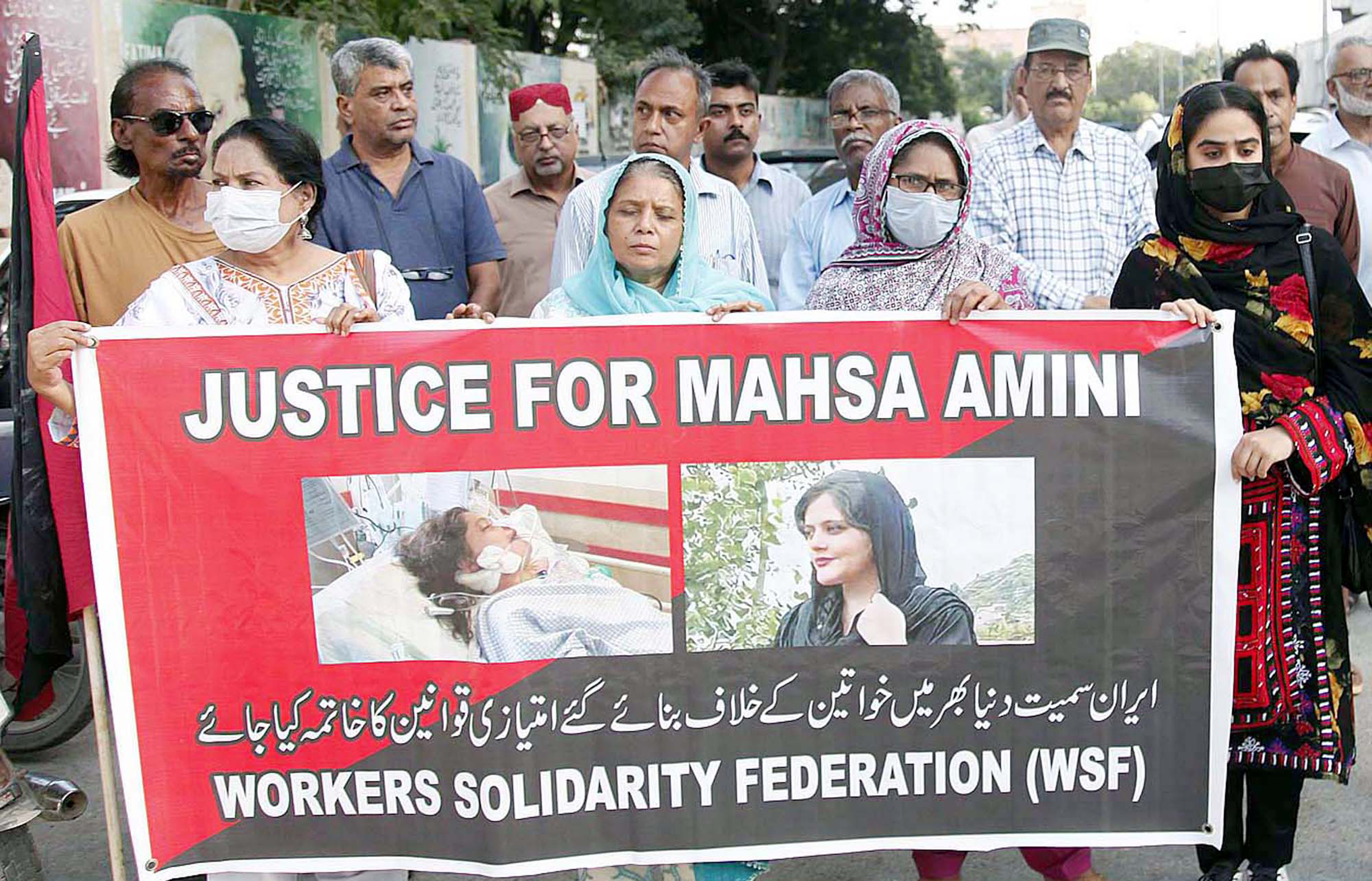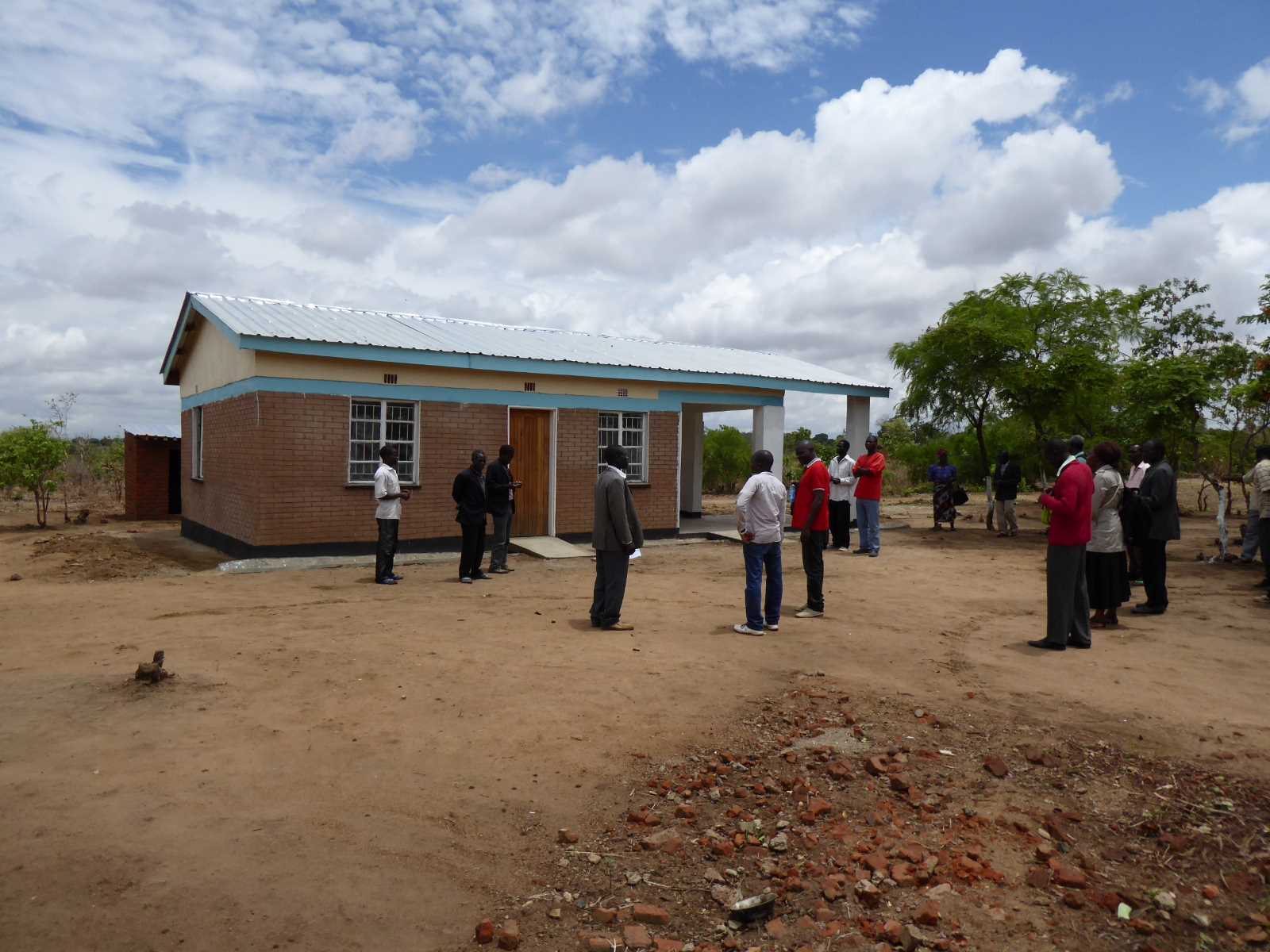Women’s rights
Partnering with women’s groups can curb gender violence

At the height of the Covid-19 pandemic, violence against women increased so much worldwide that the phenomenon acquired the name “shadow pandemic”. Lockdowns, school closures and shelter-in-place orders made tensions within households escalate, contributing to gender-based violence. In general, the pandemic has hit women harder than men (see Monika Hellstern on www.dandc.eu).
The spike in gender-based violence was also visible in Africa, according to a report published by the International Rescue Committee (IRC) during the pandemic. The international humanitarian organisation surveyed 852 women in refugee, displaced-persons and post-conflict settings in 15 African countries during the first 10 months of the pandemic. Nearly three-fourths (73 %) of respondents reported an increase in violence from a partner, 51 % cited increased sexual violence and 32 % saw growth in early and forced marriages in their communities.
South Sudan was part of this trend. Before the pandemic, an estimated one-third of South Sudanese women and girls had experienced sexual violence by a non-partner, and up to 73 % experienced violence by a partner (IRC et al., 2021). Those numbers spiked under the combined pressures of pandemic-related closures and a general breakdown in the social order. The country faces multiple challenges:
- civil strife,
- unrelenting violence,
- an economic crisis,
- the risk of famine,
- the Covid-19 pandemic and
- a weak health system.
The humanitarian response
As social structures have broken down in South Sudan, international and local humanitarian groups have stepped in to help. With support from Irish Aid, the IRC works with local women’s groups in order to offer safe spaces, counselling and skills training in camps for displaced persons. The idea was to ensure women are protected and empowered to improve their lives.
The IRC strives to reduce the incidence of gender-based violence in the first place. We are running a transformative individual behavior change curriculum developed for preventing violence against women and girls called “Engaging Men through Accountable Practices”, as it is important to challenge gender norms that can lead to violence against women. Men need to understand that violence is not a solution to household grievances and that it is costly, too. “I have decided to hold myself accountable for my actions, and my marriage has improved,” one husband said after taking part.
Going local
National and local women’s rights organisations were key players in addressing the shadow pandemic of gender-based violence. They are valuable sources of information on the needs of women and girls. Accordingly, they can give valuable advice on the feasibility of interventions. Nonetheless, in a recent report we called Covid-19 a “missed opportunity” to truly support women’s organisations. We found that women’s groups often are overlooked when humanitarian initiatives are planned. Typically, strategic documents do not even mention them.
At the same time, local and national women’s rights groups struggle to find funding. One stakeholder told the IRC that they lack access to donors and find it “impossible to penetrate” the system. Even if a group is lucky enough to receive indirect funding from an international agency, it typically does not get money for supporting its own organisational growth.
UN policy guidance
Things should be different – women’s organisations should have more power over the decisions that affect their communities. After all, Germany is currently spearheading a feminist foreign policy. Additionally, it is UN policy to favour local approaches in humanitarian responses. Commitments of this kind were made in the “Call to Action on Protection from Gender-Based Violence”, a global initiative which 97 governments, non-governmental organisations and international institutions have signed up to. Localising the emergency response by partnering with local groups is essential.
A greater focus on partnering with local groups, and providing direct funding to local groups, would also be consistent with the aims of the Generation Equality Forum, held last summer. The forum – which just celebrated its first anniversary – was convened by UN Women and has the ambition of accelerating gender equality worldwide.
The intentions are good, but far too little has changed in humanitarian practice. Systemic reforms would help to ensure a more feminist approach to partnership. The following three things should happen:
- The UN Office for the Coordination of Humanitarian Affairs (OCHA) should require the representation of women’s organisations at every stage of programming of humanitarian action.
- International humanitarian agencies should increase the number and quality of their partnerships with women’s organisations.
- Local and national women’s organisations should get more long-term as well as flexible funding, so they can cover core expenses, train staff and adapt interventions to the changing needs of their target groups.
We need a different system. “Think of us as equals,” one of our interviewees said, representing a grassroots organisation.
Links
IRC, 2021: Why not local? Gender-based violence, women’s rights organisations and the missed opportunity of Covid-19.
lt/files/document/6378/irc2021whynotlocalgbvreport.pdf
IRC, 2020: What happened? How the humanitarian response to COVID-19 failed to protect women and girls.
https://www.rescue.org/sites/default/files/document/5281/ircwpecovidreportv7.pdf
IRC et al., 2019: What works to prevent violence against women and girls in conflict and humanitarian crisis.
https://www.whatworks.co.za/resources/policy-briefs/item/662-what-works-to-prevent-violence-against-women-and-girls-in-conflict-and-humanitarian-crisis-synthesis-brief
Glory Makena works for the International Rescue Committee (IRC) in South Sudan and specialises in women’s protection and empowerment.
glory.makena@rescue.org
Brianna Guidorzi works for the International Rescue Committee (IRC) in the UK and specialises in policy on women’s protection and empowerment.
brianna.guidorzi@rescue.org












